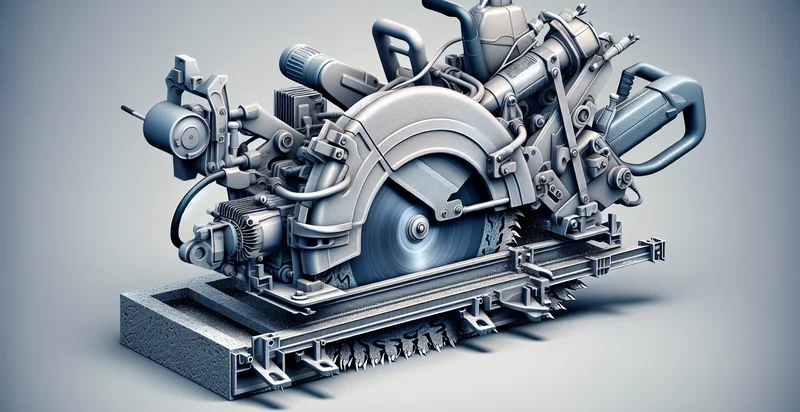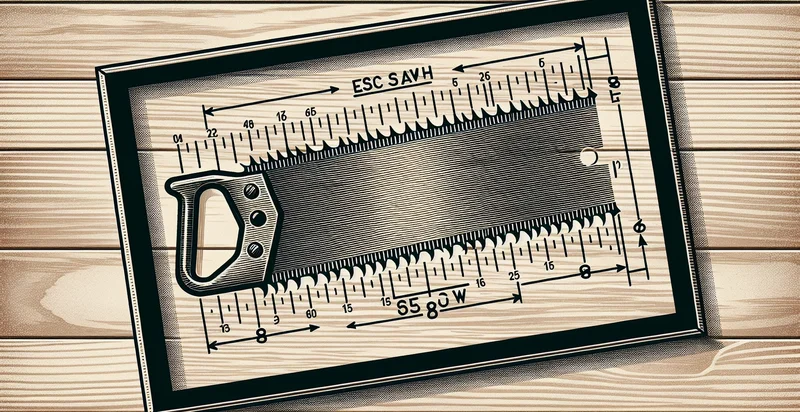Identify masonry saw type
using AI
Below is a free classifier to identify masonry saw type. Just upload your image, and our AI will predict what type of masonry saw it is - in just seconds.

Contact us for API access
Or, use Nyckel to build highly-accurate custom classifiers in just minutes. No PhD required.
Get started
import nyckel
credentials = nyckel.Credentials("YOUR_CLIENT_ID", "YOUR_CLIENT_SECRET")
nyckel.invoke("masonry-saw-type", "your_image_url", credentials)
fetch('https://www.nyckel.com/v1/functions/masonry-saw-type/invoke', {
method: 'POST',
headers: {
'Authorization': 'Bearer ' + 'YOUR_BEARER_TOKEN',
'Content-Type': 'application/json',
},
body: JSON.stringify(
{"data": "your_image_url"}
)
})
.then(response => response.json())
.then(data => console.log(data));
curl -X POST \
-H "Content-Type: application/json" \
-H "Authorization: Bearer YOUR_BEARER_TOKEN" \
-d '{"data": "your_image_url"}' \
https://www.nyckel.com/v1/functions/masonry-saw-type/invoke
How this classifier works
To start, upload your image. Our AI tool will then predict what type of masonry saw it is.
This pretrained image model uses a Nyckel-created dataset and has 25 labels, including Abrasive Blade, Battery, Block, Brick, Circular, Compact, Concrete, Diamond Blade, Electric and Floor.
We'll also show a confidence score (the higher the number, the more confident the AI model is around what type of masonry saw it is).
Whether you're just curious or building masonry saw type detection into your application, we hope our classifier proves helpful.
Related Classifiers
Need to identify masonry saw type at scale?
Get API or Zapier access to this classifier for free. It's perfect for:
- Construction Equipment Rental: A construction equipment rental service can use the masonry saw type identifier to streamline their inventory management. By classifying saws accurately, the business can ensure proper maintenance, track the demand for specific types, and reduce equipment mix-ups, thereby improving customer satisfaction.
- Automated Market Analysis: Suppliers and manufacturers of masonry saws can leverage the classification function to analyze market trends and consumer preferences. This data-driven approach can help in refining product offerings, optimizing marketing strategies, and identifying new opportunities in the masonry sector.
- Quality Control in Manufacturing: Manufacturers of masonry saws can implement this identifier in their quality control processes. By ensuring that each saw type is categorized correctly, they can reduce defects, improve production efficiency, and maintain high standards for product quality.
- E-commerce Product Management: An online marketplace selling masonry tools can utilize the classification function to enhance the accuracy of product listings. Properly identifying the type of masonry saw can lead to better search results, improved customer experience, and reduced return rates due to mismatched product expectations.
- Training Tool for Tradespeople: A training program for aspiring masons or construction workers can use the masonry saw type identifier as an educational tool. Participants can learn to recognize different saw types, understand their specific applications, and make informed decisions when selecting tools for various masonry tasks.
- Tool Insurance Assessment: Insurance companies specializing in tools can apply this function to assess risk and value accurately. By classifying the type of masonry saws covered under insurance policies, they can tailor premiums and ensure proper coverage based on the specific use-case scenarios of each tool type.
- AI-Based Virtual Assistant: A virtual assistant designed for contractors and builders could integrate the masonry saw type identifier to provide instant tool recommendations. By recognizing the specific saw needed for a given job, the assistant can enhance decision-making efficiency and improve project outcomes for users in the field.


